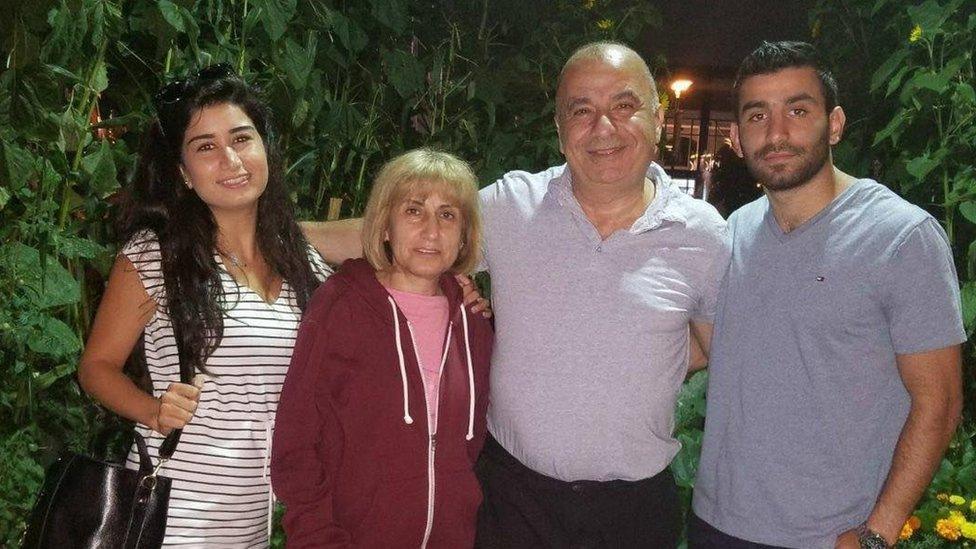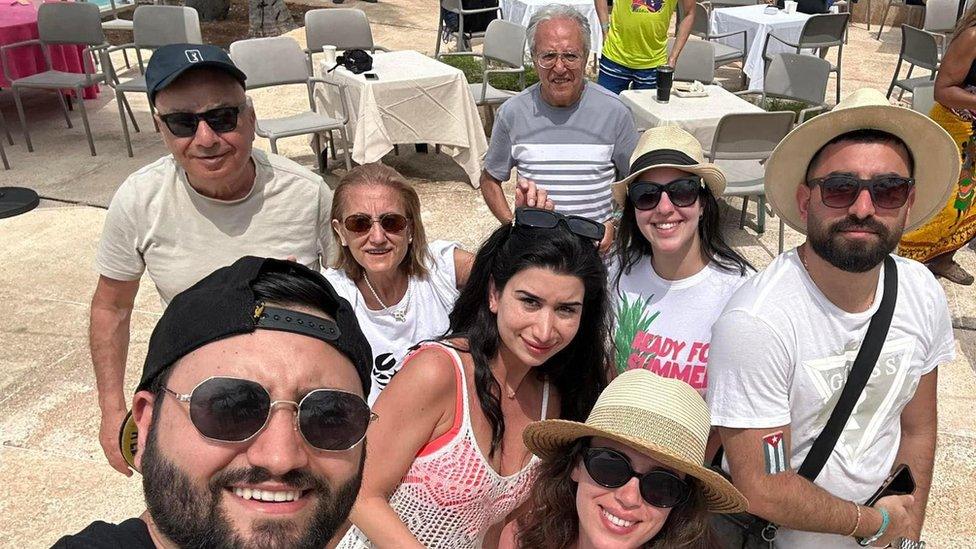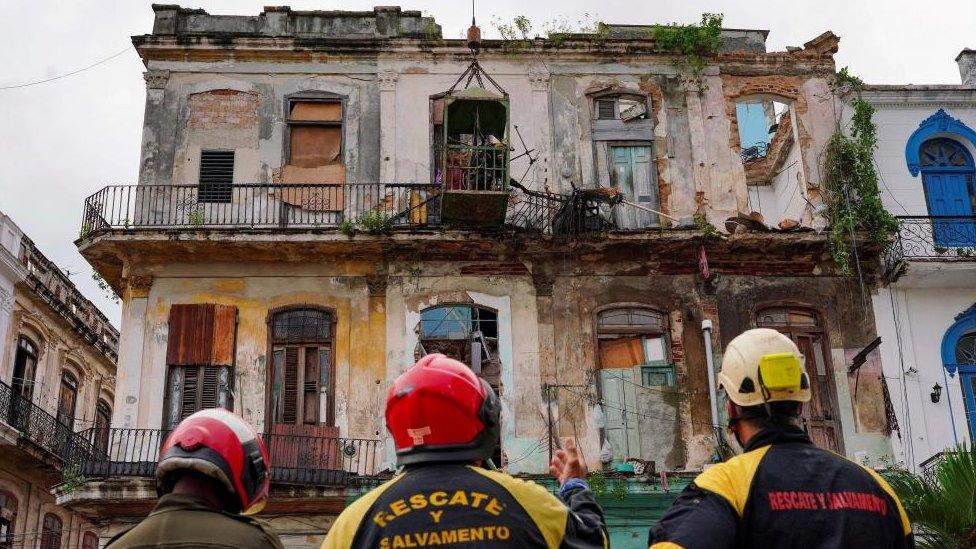Body of Canadian father missing after he dies in Cuba
- Published

Faraj Jarjour (second from right) with his two children and wife
A Canadian family is demanding answers from officials after they received the wrong body following the death of their father abroad.
Faraj Jarjour died from an apparent heart attack while on vacation with his family in Varadero, Cuba on 22 March.
One month later, his children say they have yet to receive Mr Jarjour's body back for burial.
They say they were sent the body of a different man instead, and that their father's remains are still missing.
"It's a tragedy at their house," Anas Fransis, a close friend of the Jarjour family, told the BBC in an interview.
The family, who live in Laval, Quebec, were on the beach at a resort in Varadero on their second day of vacation when their 68-year-old father suffered from an apparent cardiac arrest.
There was no doctor on the premises, Mr Fransis said, and the family had to wait an hour and a half until medical help arrived. They waited another seven hours for Mr Jarjour's deceased body to be transferred to Havana, where the nearest morgue was located.
The family then contacted Canadian consular services in Cuba. Canadian officials advised them to travel immediately back to Canada, Mr Fransis said, and to get in touch with authorities there to arrange the transfer of Mr Jarjour's body back home.
Mr Fransis said the family was also told to pay C$10,000 ($7,300; £5,900) in transportation fees.
After paying, family members they waited several weeks without hearing from Canadian authorities on the whereabouts of Mr Jarjour's body. They then received an update that his remains would arrive on 18 April.
But the body that eventually arrived in Quebec, accompanied by Mr Jarjour's death certificate and travel documents, was the wrong one, Mr Fransis said.
A funeral home received the remains of a man with a full head of hair, tattoos, and who was "much, much younger" than Mr Jarjour, Mr Fransis said.
Russian consulate services in Canada later identified the man as a Russian national, he said.

The family was on vacation in Cuba when Faraj Jarjour died from an apparent heart attack
As of Monday, Mr Fransis said the body of the unnamed Russian man is still in Canada, while the body of Mr Jarjour is missing.
He has accused Canadian authorities of "negligence", alleging the family has received little help from consular services.
"All the family wants to know is: Is he still in Cuba? Was he sent to Russia?" Mr Fransis said. "Where is he?"
In response to questions from the BBC, Global Affairs Canada said it is aware of the death of a Canadian citizen in Cuba, "engaged with Cuban authorities", and in contact with the family.
A spokesperson added that, in general, when a Canadian citizen dies in Cuba, Global Affairs Canada "may facilitate a transfer of funds between the family and local funeral services".
"It is the local funeral services provider that manages all aspects of a foreigner's death in Cuba, including the embalming, booking the flights, delivering the remains to the airline, and communicating the shipping details," Global Affairs said.
The ministry declined to provide further details on Mr Jarjour's case, citing privacy considerations.
Mr Fransis said the family was told by Canadian authorities to contact Asistur, a Cuban medical insurance company that they said was responsible for delivering the body.
But he said the family was never in touch directly with Asistur, and that all logistics surrounding the transfer of his body - including payments - were facilitated by Canadian authorities.
The funeral home that received the wrong body told CTV News that it is in touch with the Cuban company and is looking for Mr Jarjour's body.
Mr Fransis said the family has been disheartened for the last month, and is appealing for any help so that they can commence with their father's burial.
"It was (supposed to be) a simple transport," he said, adding they would have "just turned the page, their lives would have continued" had it been completed.
- Published5 October 2023
